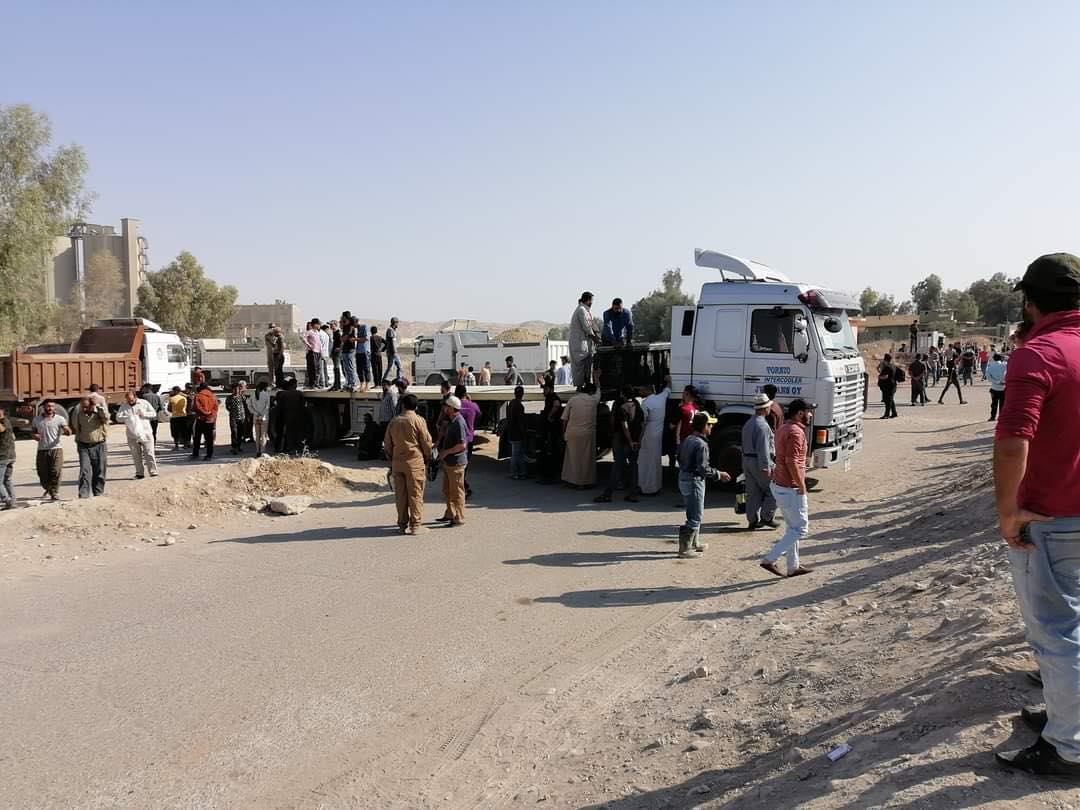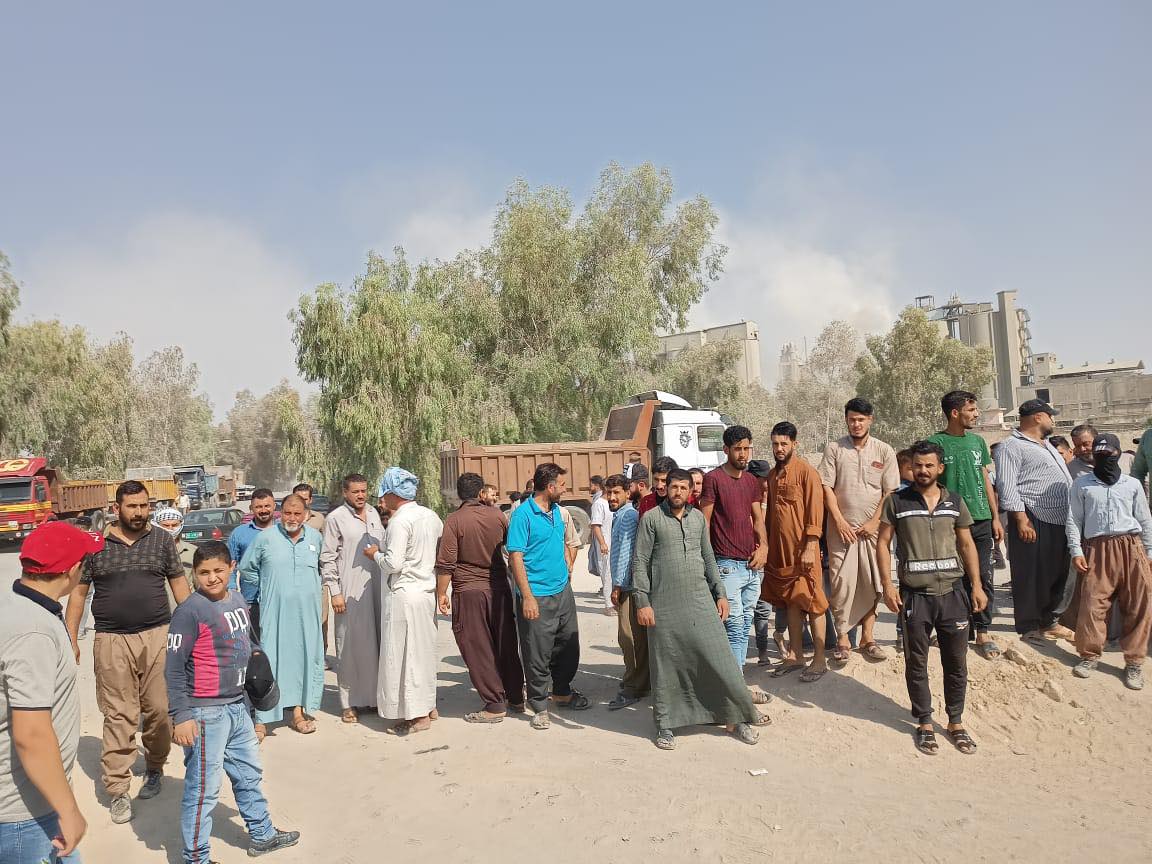The laborers of Badosh cement factory in Ninewa province continue protesting the procedures of Iraqi government for privatizing state-run factories in the region which might lead to cutting employers into half.
The Iraqi ministry of industry and minerals and the administration of state-owned Badosh cement factory affirm that no laborers will be sent home and private investment leads to boost production capacity, higher quality and reduce pollution of environment.
"(Private sector) investment contract signed 10 days ago is widely rejected among the workers of the factory," said Ashraf Zahir, representative of daily-paid workers the Badosh cement factory.
"The workers expect the new owners will reduce workers and staff to half and the source of income for many families while the factory is producing 4,000 tons a day," he added.
The workers are afraid their destiny will be like workers released from the factories of Hadba, Rafidain and Shingal whom were cut to half following privatization.
The workers expect the new owners will reduce workers and staff to half
No reforms in post-investment stage
The administration of the factory completely disagrees with the workers.
Ali Zaidan, director of North Cement Factory said release of workers is not true as the factory just hired 200 new workers.
"The protestors are few daily paid workers and the issue has been sorted out," Zaidan said.
The 1,200 workers of the factory were jobless between 2014 to 2017, when the so-called Islamic State in Iraq and Syria ISIS took over Mosul and almost one third of Iraqi territories. Now they are under the threat of forcible retirement.

Ninewa, July 18th 2021- Demonstrating workers block the way from Badosh cement factory to the district of Talafar in Mosul. KirkukNow
Purpose behind lease of the factory
Zaidan said most of the state-run factories are in loss, covering shortages from financial funds by the ministry.
"The new contract states salaries of daily-paid workers and staff to be covered so expectation of release of workers is not true though current production capacity generates no profits," he added.
The new contract states salaries of daily-paid workers and staff to be covered
Zidan said another term of the contract is the investor is to install proper filtration system for the factory as surrounding areas are residential and complained about pollution and waste by the factory.
The government evaluates the performance of the investor in a year to check development of the factory.
Pollution is the reason behind the contract
The ministry of industry says the negative outcome of the factory is the incentive behind signing a contract with an investor as the ministry is incapable to provide proper air filtration.
"Changing the contract of Badosh Cement factory into private sector investment is within the legal procedures toward investment in the productive factories and slow factories to be renovated via investment," a statement by the ministry said.
The statement by the ministry elaborates the factory has been installed in 1997 per law number 22 of companies and was leased to a private investor to develop it and renew production lines and reduce pollution following a warning by Ninawa Environment office which warned the factory to solve the issue of air pollution and waste, a matter that requires a big budge the ministry is incapable to provide.
The ministry assured the investor is to modernize the factory and obliged of payroll list.
"I still prefer state-run administration not investors since in other factories some workers were fired and those still in office are either daily paid or maonthly," Zahir said.





